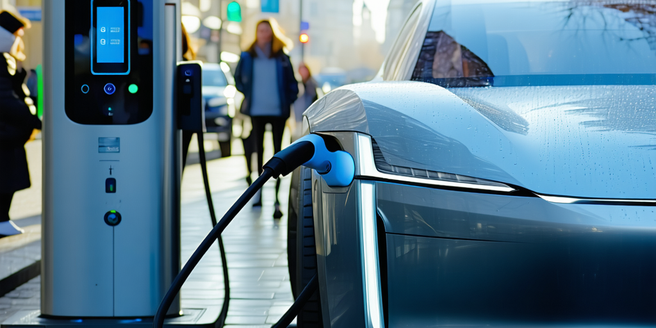Electric Vehicle Developments

Advancements in Battery Technology
Recent advancements in battery technology have significantly impacted the electric vehicle (EV) industry. Researchers are focusing on increasing energy density, reducing charging times, and improving safety features. Solid-state batteries are at the forefront, offering higher capacities and faster charge cycles than traditional lithium-ion batteries. With these enhancements, the future of transportation looks increasingly sustainable. Innovations in anode and cathode materials are also contributing to longer-lasting and more efficient batteries. Companies are investing heavily in R&D to lower production costs and enhance battery life. These technological breakthroughs are crucial for making EVs more affordable and appealing to a broader audience. As battery technology evolves, it will enable longer driving ranges, reduce the frequency of charging, and bolster consumer confidence in electric vehicles.
Charging Infrastructure Expansion
The expansion of charging infrastructure is essential to support the growing adoption of electric vehicles. Governments and private companies are collaborating to establish a network of convenient, fast-charging stations nationwide. This collaboration is expected to accelerate the transition to cleaner transportation. This infrastructure aims to alleviate ‘range anxiety,’ a common concern among potential EV buyers worried about running out of power during travel. New technologies, like ultra-fast chargers, can significantly reduce charging times, making electric vehicles more practical for long-distance journeys. Initiatives are also underway to integrate renewable energy sources into charging stations, further promoting sustainable practices. As the network grows, strategically placed charging points will ensure accessibility across urban and rural areas.
Government Policies and Incentives
Government policies play a crucial role in accelerating electric vehicle adoption. Various countries are implementing incentives such as tax rebates, purchase grants, and reduced registration fees to make EVs more accessible. Policies targeting emissions reductions are also pushing automakers to focus on electric models. In some regions, governments are setting ambitious targets for phasing out internal combustion engine vehicles, further driving the transition to electric. The collaboration between public and private sectors is crucial for achieving these objectives. Investments in research grants and public charging infrastructure are being prioritized to support this shift. These measures not only facilitate a greener future but also stimulate economic growth in the renewable energy and automotive sectors.
Emerging Electric Vehicle Models
Automakers worldwide are launching new electric vehicle models to cater to diverse customer needs. From compact city cars to luxury SUVs, the variety in EV offerings has significantly increased. Advances in design and technology allow for enhanced performance, improved safety features, and greater range capabilities. Brands are focusing on both aesthetics and aerodynamics to attract a wider consumer base. Car manufacturers are also working on reducing production costs to make EVs more affordable. With government incentives and a push for sustainability, the market is more inviting for potential EV buyers. As a result, the choice for consumers is broader than ever, with models tailored for efficiency and luxury equally available. This proliferation is vital for mainstream EV adoption.
Impact on the Environment and Economy
The rise of electric vehicles presents significant benefits for both the environment and the economy. EVs contribute to reduced greenhouse gas emissions, helping combat climate change by lowering the carbon footprint of transportation. They offer a cleaner alternative to traditional vehicles, with lower emissions of harmful pollutants contributing to air quality improvement. Moreover, the accessibility of EVs can provide more transportation options for consumers. Additionally, the increased adoption of electric vehicles can drive innovation in related technological advancements. Economically, the shift towards electric mobility stimulates job creation in new sectors like battery manufacturing, charging infrastructure, and renewable energy. Moreover, reducing dependency on fossil fuels enhances energy security and price stability. These factors collectively support a sustainable future, benefiting society at large.